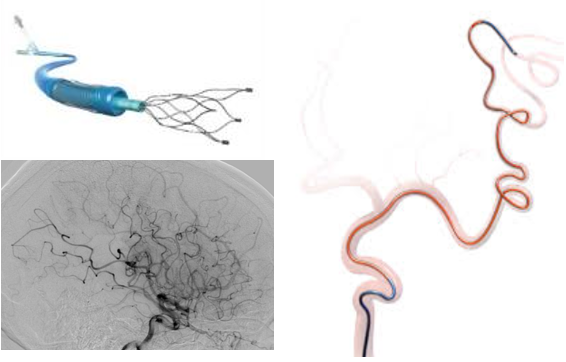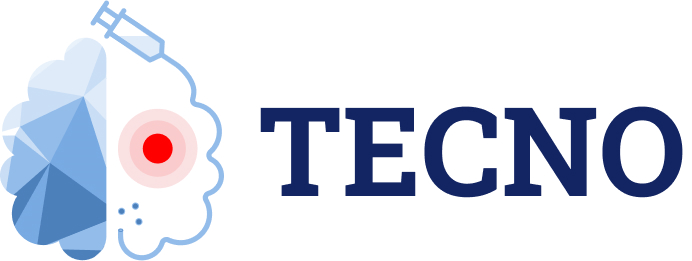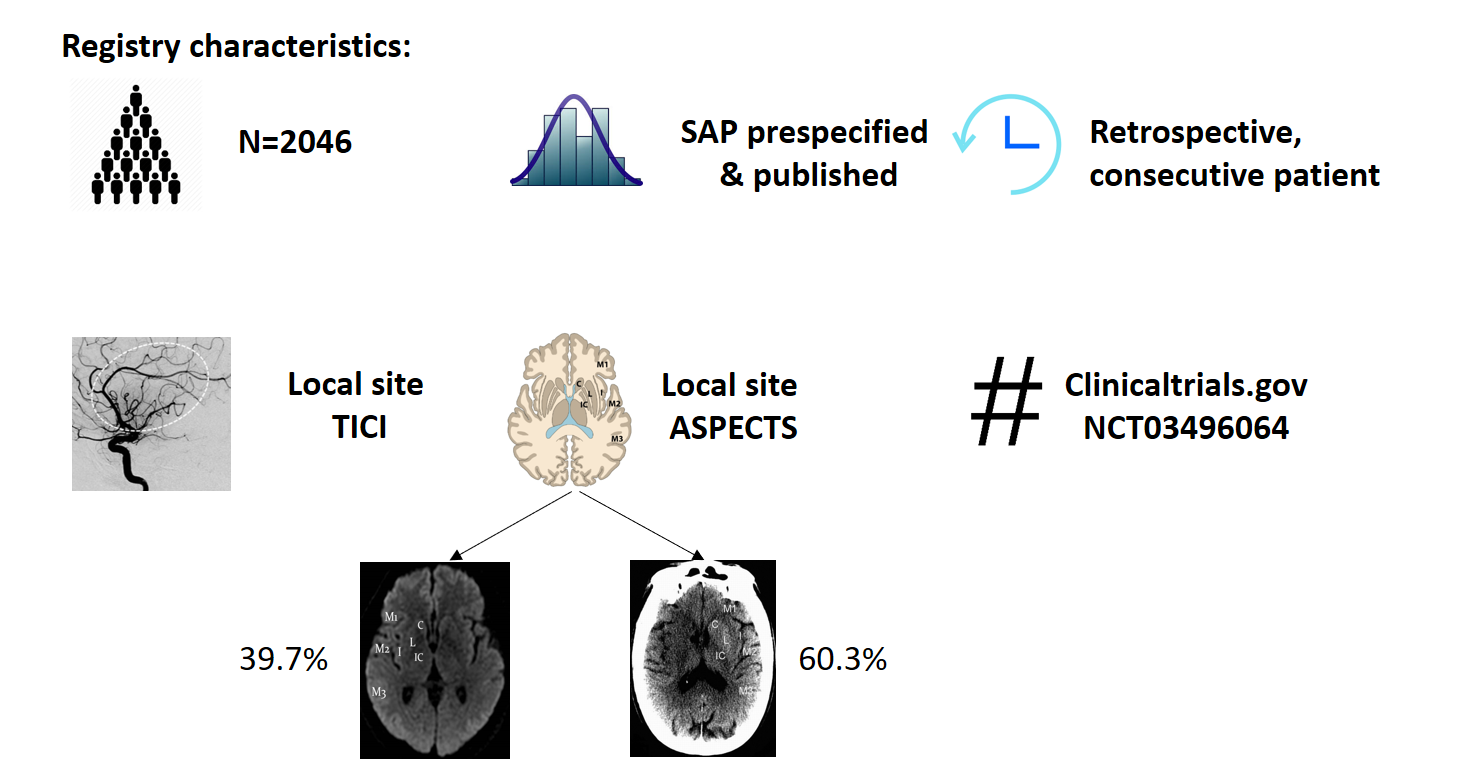Endovascular stroke treatment

Endovascular Stroke treatment has evolved as the standard of care for patients presenting with large vessel occlusion acute ischemic strokes.
In Bern, many aspects of endovascular stroke treatment are studied. Key topics of interest are endovascular treatment in patients with border-line indication groups, evaluating new strategies to reach complete reperfusion and treat distal emboli and new therapy concept in patients presenting with medium vessel occlusions or occlusions due to atherosclerotic intracranial disease.
Borderline Indication Groups (BEYOND-SWIFT Registry)
Many patients presenting with an acute ischemic stroke due to a large-vessel occlusion do not fulfill randomized-clinical trial criteria. The BEYOND-SWIFT registry was a Medtronic© funded multinational registry of patients treated with stent-retriever mechanical thrombectomy. In this registry outcome and the potential benefit of successful reperfusion will be evaluated in patients presenting with large infarct cores, current medication with direct oral anticoagulants or posterior circulation stroke. Results of the registry inform future trial planning and can guide current individualized stroke therapy in patients not meeting top tier evidence.
Intra-arterial Fibriolytics after Mechanical Thrombectomy
In patients undergoing mechanical thrombectomy, achieving complete (Thrombolysis in Cerebral Infarction 3) rather than incomplete successful reperfusion (Thrombolysis in Cerebral Infarction 2b) is associated with better functional outcome. Despite technical improvements, incomplete reperfusion remains the final angiographic result in 40% of patients according to recent trials. As most incomplete reperfusions are caused by distal vessel occlusions, they are potentially amenable to rescue strategies. Treatment with Intra-arterial Fibrinolytics is a potential rescue strategy after incomplete reperfusion with mechanical thrombectoy is achived. In this project, we evaluate the effect of additional intra-arterial fibrinolytics on patient outcomes. For this purpose, observational studies and a randomized clinical trial are designed. In the Tenecteplase for (TECNO) Trial patients with an incomplete reperfusion after mechanical thrombectomy will be randomized to receive additional intra-arterial Tenecteplase or standard of care (no further treatment). The results will inform physicians if intra-arterial thrombolysis is a safe and efficious treatment approach in patients with remaining vessel occlusions after mechanical thrombectomy.

Medium Vessel Occlusions
Small Strokes can be defined according to the size of the affected vessel or the severity of the neurological deficit at presentation. In endovascular interventions, medium vessel occlusions (MeVO) present difficult clinical scenarios. This is partially because the potential benefits over risks decrease, if the territory and clinical deficit at stake becomes smaller and smaller. Nevertheless small strokes can cause big problems and a considerable proportion of patients with small strokes do not regain functional independence. Hence, effective treatment regimens for these patients are urgently needed. The research topic MeVO will cover etiology, outcomes and interventions in patient presenting with small vessel occlusions and/or minor neurological deficits.

